Tourism in harmony with nature: A path to survival
March 18, 2024
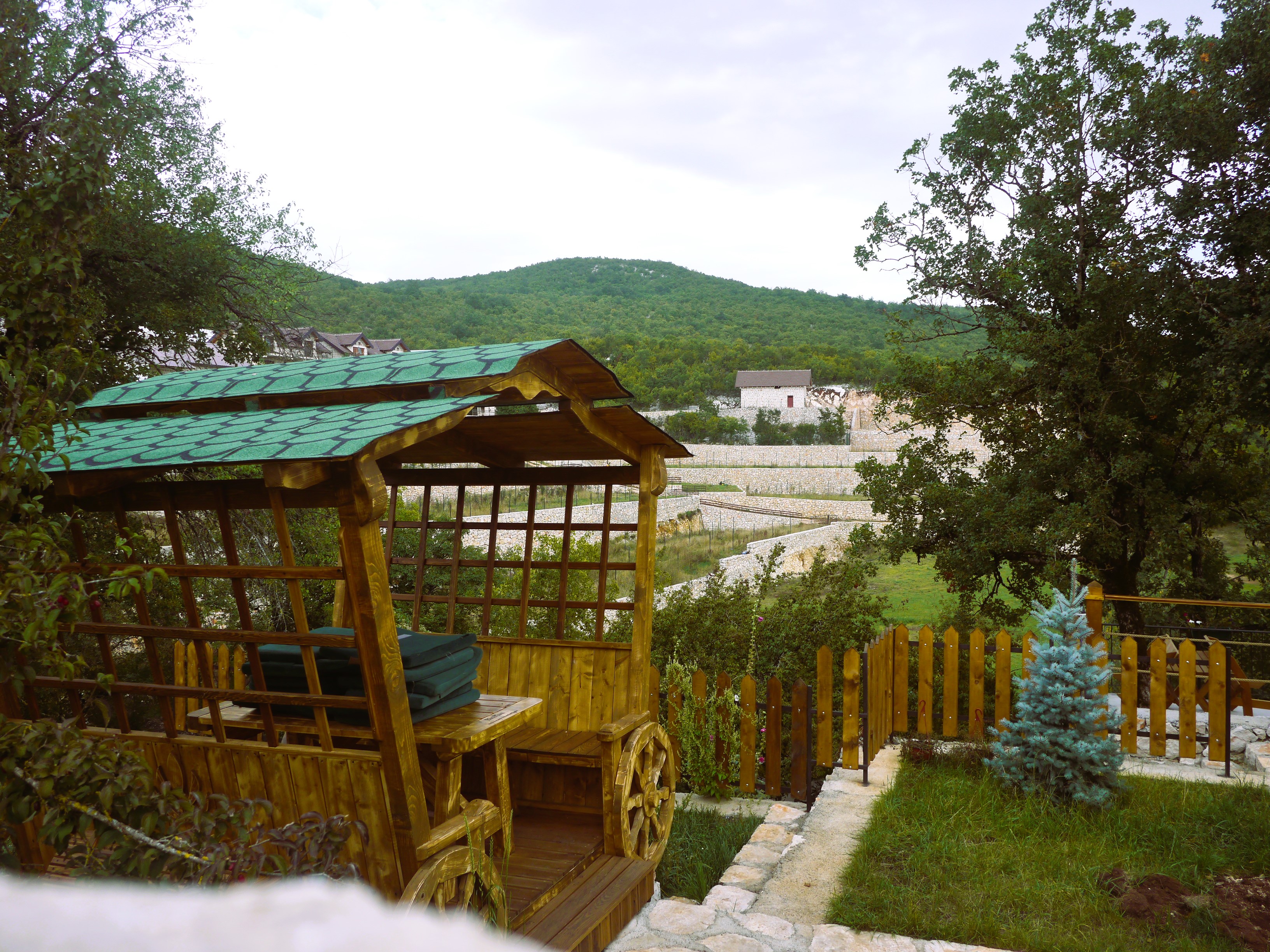
In the eco-katun Ljeljenak on Piva Mountain, nothing is purchased, and nothing is discarded.
“We have everything we need here: milk, cheese, cream, eggs, fruits, and vegetables, we dry and process the meat ourselves, craft liqueurs, juices. The animals feed at 1,700 meters above sea level and everything is entirely natural. We remake, recycle, and reuse, whether it's for animal feed, fertilizer, or decorative purposes”, states Mia Jokanović, the estate owner, gesturing towards the carved pumpkins in the hut.
This unique experience has captured the interest of tourists from around the world, drawn to the stunning vistas of the Durmitor region that this village provides, which inspired Mia and her husband to venture into catering.
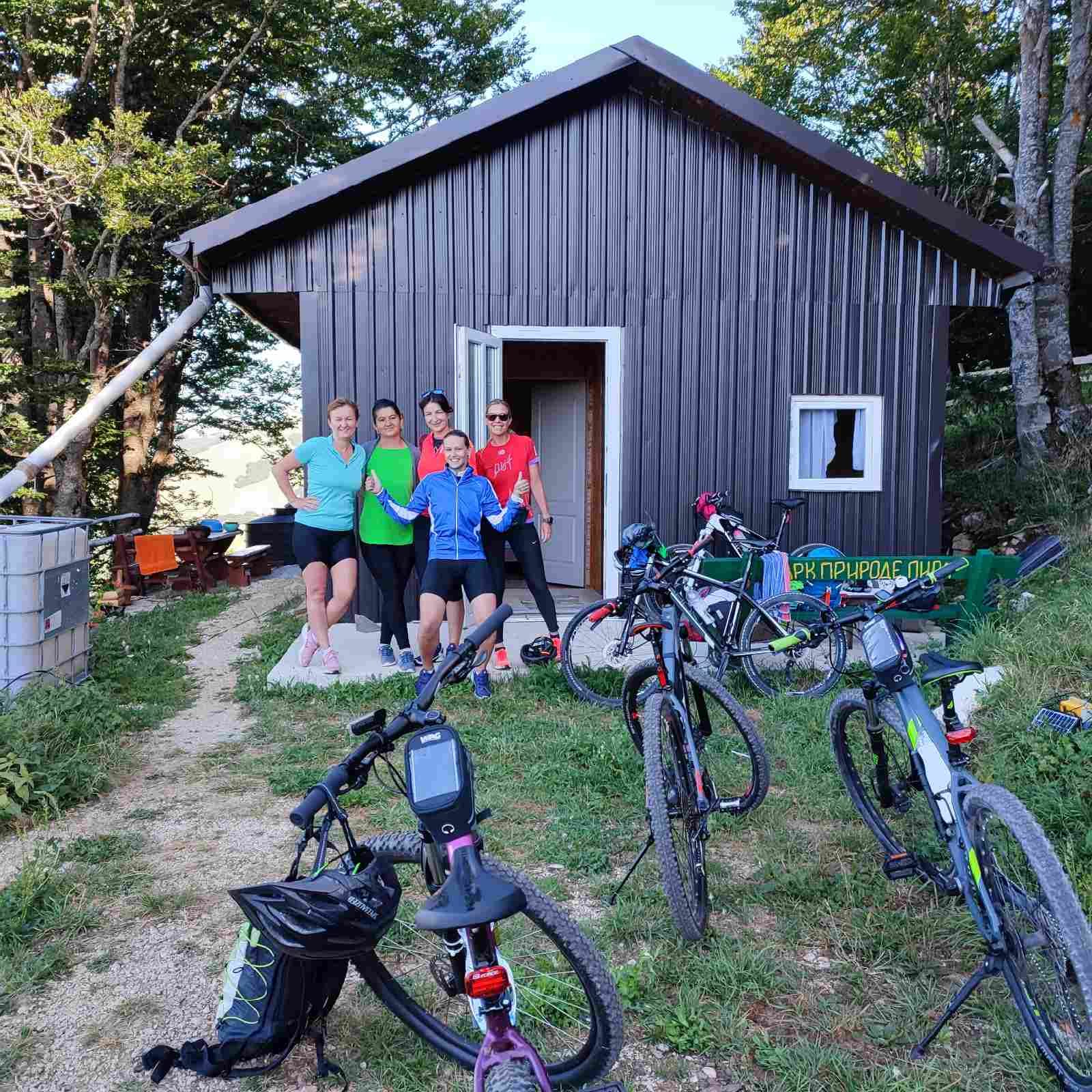
Mia Jokanović with guests
Staying in rural areas has become a prevailing trend, and Montenegro has the potential to position itself even more prominently among tourists seeking authentic experiences and wishing to support sustainable practices and local communities. The UN’s sustainable development goals and the European Agenda for Tourism 2030 emphasize integrated ecotourism that addresses climate change and biodiversity loss, while promoting local products. Building on this momentum, the Network for Rural Development and the NGO To Revive Piva Villages launched the “Agritourism School” last year. This initiative aimed to train representatives from approximately twenty rural households in the Nikšić and Plužine areas, helping them enhance their offerings and effectively market them in today's tourism landscape.
Mia attended the Agritourism School despite the challenges of traveling from Katun Ljeljenak to Nikšić, involving climbing and dirt roads. With a household owing 20 cows, it was not an easy task, but Mia never missed a class.
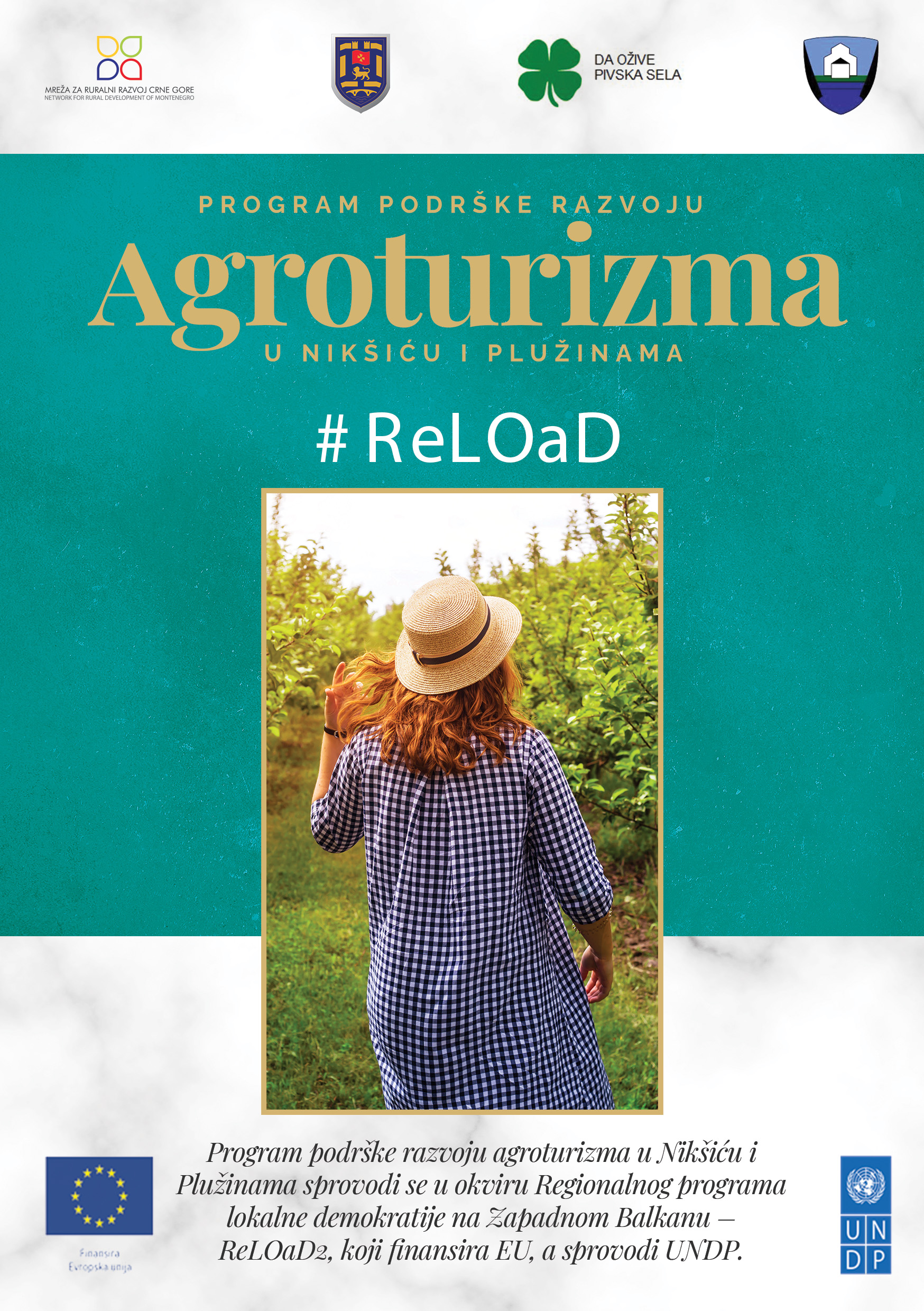
In the catering business, it is more than just offering services; it is about creating memorable experiences for guests. A successful career in tourism requires continuous learning and staying updated with trends. The Agrotourism School provided training in marketing, economics, and environmental management for those interested. The project was funded by the European Union through the ReLOaD2 programme, implemented by UNDP in collaboration with local governments, including Nikšić and Plužine municipalities.
Mia is already well-versed in traditional gastronomy, local hiking trails, and the hidden gems of the Piva region. However, her interest lies in new technologies and forging partnerships to enhance service quality, making the School highly valuable for her. Slavica Tadić, who manages a household near Nikšić, shares a similar sentiment. She mentions that the lectures taught her not only the intricacies of preparing homemade food but also how to present her business more effectively. Despite decades of experience, she eagerly anticipated the classes, recognizing that evolving times call for new techniques and methods, requiring patient mastery.
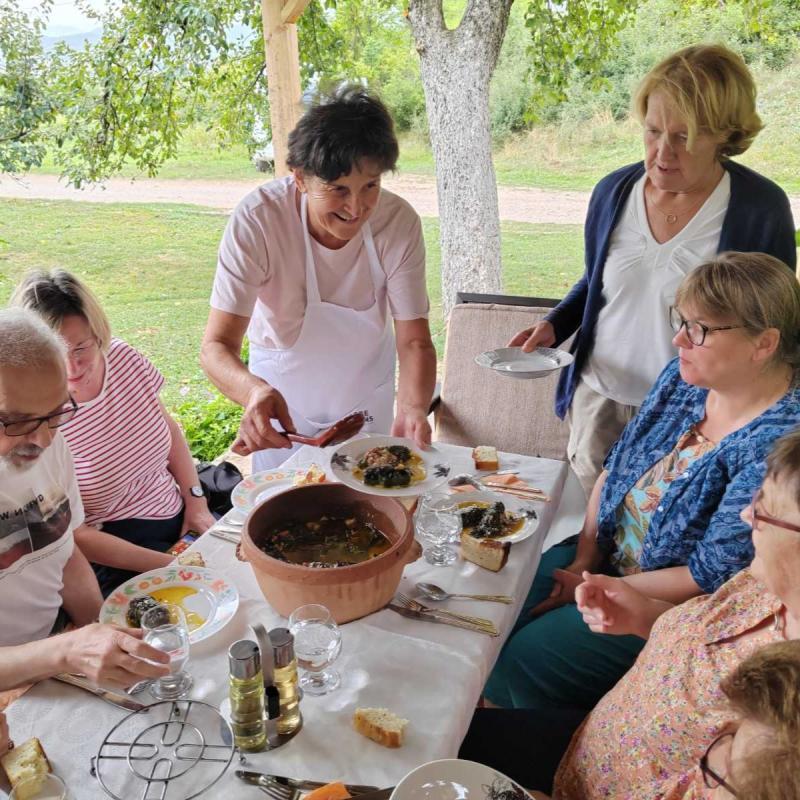
Slavica Tadić with guests
“The early illness and the passing of my husband created a significant void in my family. Seeking a solution for my children and me, I turned to rural tourism, and the fruits of my labour are evident. I take great pride in the fact that my household has been recognized as an exemplary case, demonstrating good practice”, shares Slavica from the Tadić Farm, situated near the ring road on the Žabljak-Risan highway.
“At Tadić’s, our guests are treated like family. We share our lives, dine on the fresh food Slavica prepares daily – no menus or artificial additives. You don’t feel like a stranger; it’s a choice for those who want to deeply understand the culture and lifestyle of the local population”, express the guests who opt for such establishments.
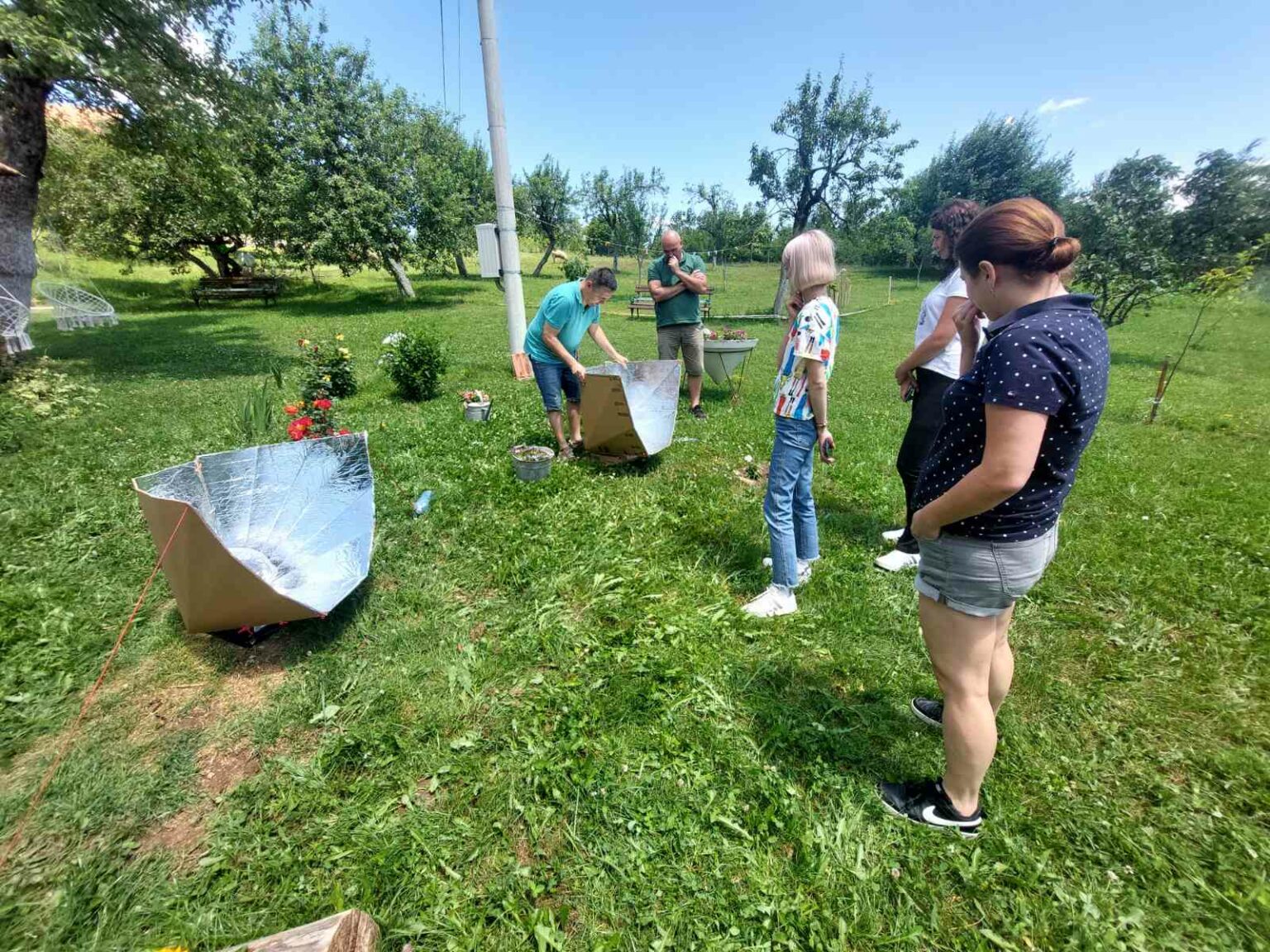
Solar cooking at Slavica Tadić's estate
Visitors not only relish the tranquillity of nature, engage in digital detox, and savour traditional dishes but also eagerly participate in activities such as mowing, milking cows, and tending to the garden.
“The number of guests seeking a healthy environment is growing, one where ecological standards govern waste management, as well as the use of fertilizers and pesticides”, notes another graduate of the School, Irena Ćipranić.
Irena, a member of the family farm in Župa, has established a reputable brand known for its distinctive dairy products. Committed to continuous learning and personal development, she actively contributes to the company’s growth. The Ćipranić goat farm, situated in an unpolluted area, has enhanced this natural setting with authentic stone houses for guest accommodation, lush gardens, orchards, and, recently, an ecological gastronomic offering in a rustic restaurant.
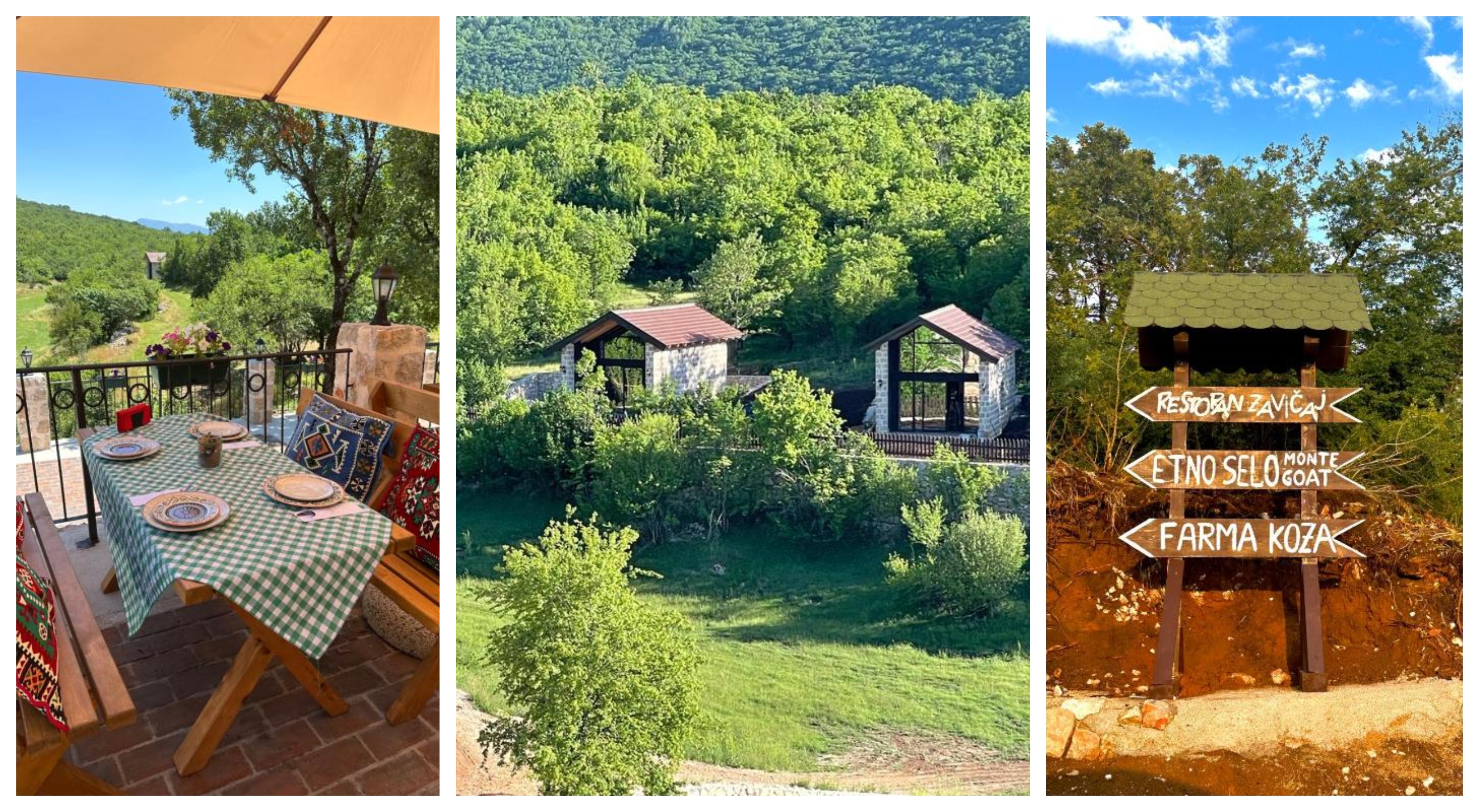
MONTEGOAT - goat farm of Irena Ćipranić
For these female entrepreneurs, embracing green responsibility and the “zero waste” concept is unnecessary; a genuine unity with nature and the judicious use of resources is a way of life dictated by the conditions in Montenegrin villages. However, they emphasize that for green tourism to thrive, individual success stories are insufficient.
For the past decade, the Network for Rural Development has been spearheading campaigns to enhance the quality of life in rural areas, placing a particular emphasis on women. Women play crucial roles as key contributors to the rural economy, engaging in unpaid domestic and farm work, shouldering family care responsibilities. Remarkably, in 80% of cases, these women do not own a single meter of land.
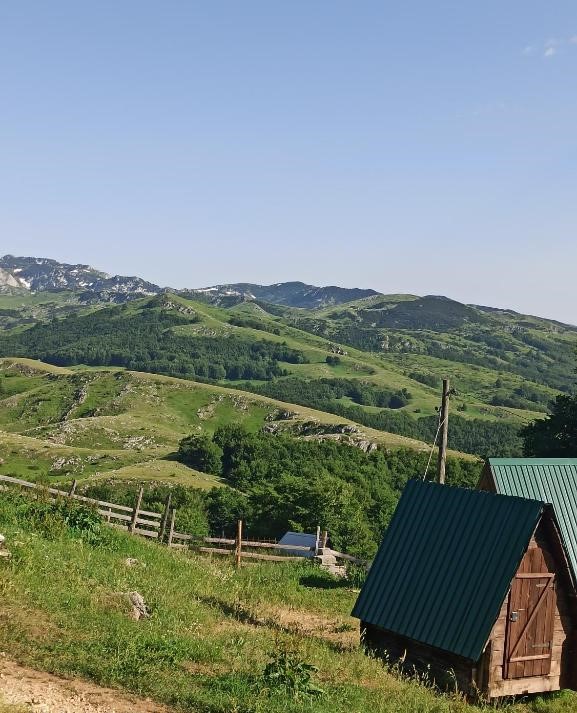
View from the Ljeljenak mountain cottage
The stories of Irena, Slavica, and Mia not only inspire hope for thriving businesses in rural areas but also underscore the significance of involving women in decision-making processes concerning sustainable development. Beyond their inspirational leadership, these entrepreneurs highlight the imperative for support and the creation of more favourable conditions in rural areas.
“Essentially, it is crucial to maintain and develop road and water infrastructure and modernize the power grid. To bolster rural development, the establishment of relevant organizations is essential. These entities should concentrate on gathering and disseminating current information, providing support for young people, and offering education and assistance in the application process for EU-funded projects”, concludes Irena Ćipranić.

 Locations
Locations
